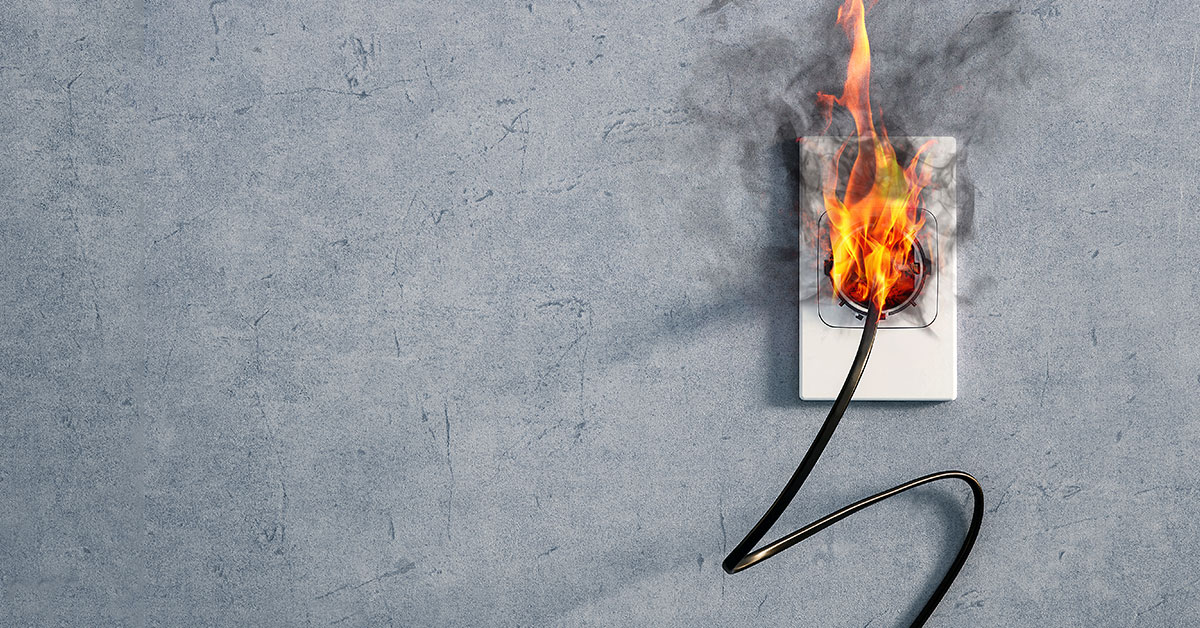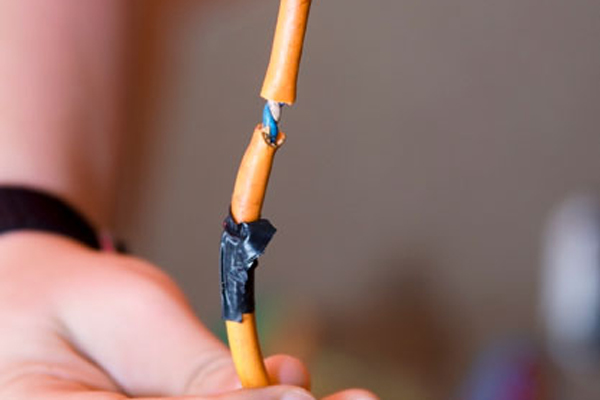Faulty Wiring
May 20, 2019

The threat of faulty wiring to homes focuses on houses built before the 1950s. Why? Because in the 1950s, the electrical wiring standards were less stringent than today. While older homes were built to handle 30 amps of power, most newer homes demand 100 to 200 amps. This demand places a significant strain on a home’s wiring and electrical system. However, even newer homes are at risk for an electrical fire.
Electric currents carried by wiring, switches, plugs and appliances generate heat. Excessive or uncontrolled heat can start fires. To help prevent electrical fires, know how to use and store plugs and electrical cords, and take these precautions:

- Don’t run cords under carpeting, bedding or other combustible materials. Also, avoid placing cords across doorways or frequently traveled areas.
- Discard frayed or broken cords, and never splice two cords together.
- Don’t overload outlets or use extension cords in place of outlets. Call an electrician to install additional outlets as necessary.
- Ensure plugs fit snugly in outlets to prevent shock and excess heat.
The most common causes for electrical fires are:
- Incorrectly installed wiring
- Overloaded circuits and extension cords
- Defective or improper plugs, switches and outlets
- Misuse and poor maintenance of lighting
If your home was built between 1965 and 1973, consider having the aluminum wiring inspected. The wall sockets, switches and cable connections installed during this era are frequently problematic because aluminum wiring oxidizes and degrades more quickly than copper wiring.
To prevent an electrical fire, learn to recognize the warning signs that indicate a possible wiring or electrical problem. Contact Metro Electric immediately to examine and repair electrical problems if you experience any of the following issues in your home:
- Flickering or dimming lights
- Switches or outlets that are hot to touch and/or emit an acrid odor
- Discolored cords, outlets and switch plates
- Repeatedly blown fuses and tripped circuit breakers

